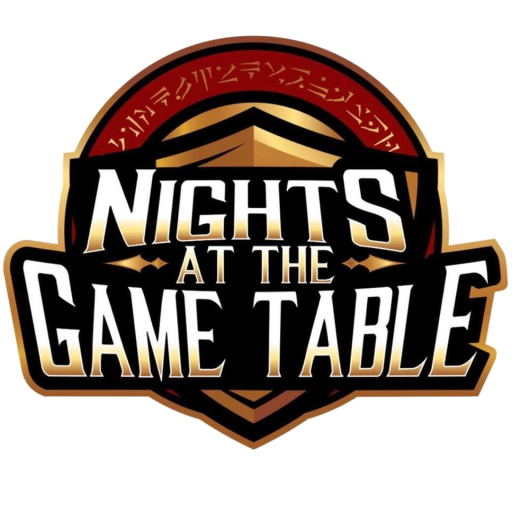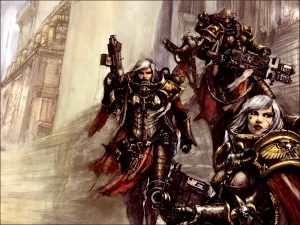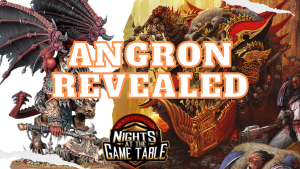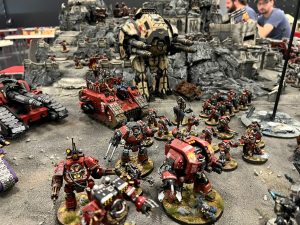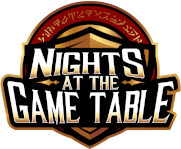It’s no secret that getting a group together to play Warhammer consistently is a challenge. To establish and maintain a group that meets regularly, you need to all be on the same page about some basics. This is a game that also takes some community support. The financial commitment for Warhammer is high, and so is the time commitment when it comes to painting and playing, and there are lots of different ways group members and communities can support each other.
Here are four tips to get started when it comes to growing and maintaining a local Warhammer group.
Establish Decorum, Goals, and Group Norms
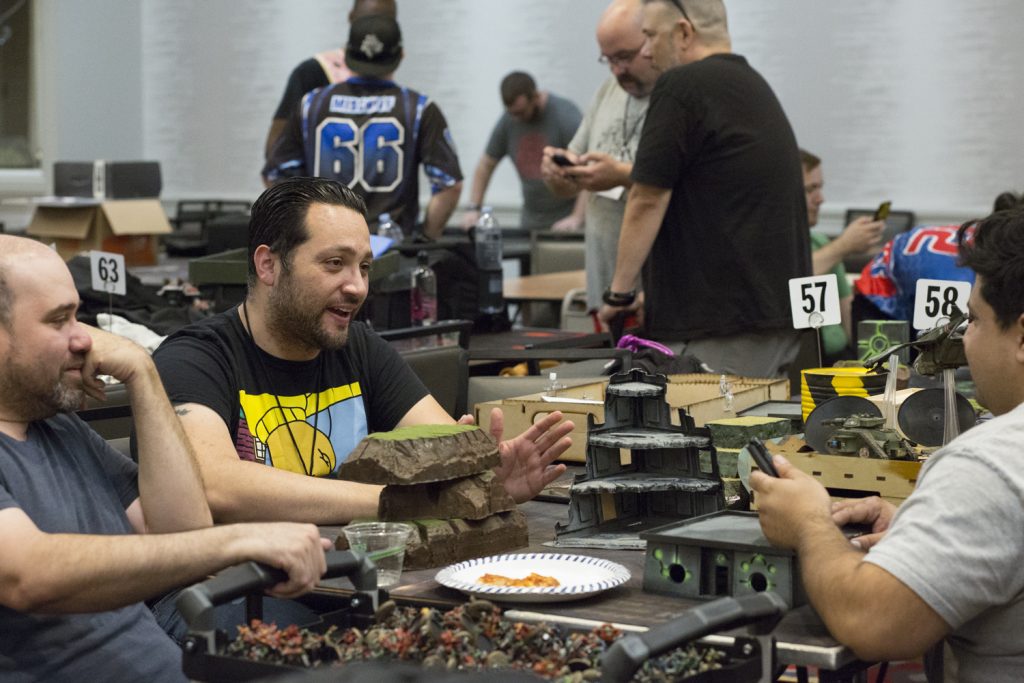
As Warhammer players, you all have something in common: the ability to play, learn, and enthuse about the game. As people, you may have different lives, backgrounds, life events, and financial circumstances. Additionally, everyone’s history is different, and a person’s past groups might define a way a player sees Warhammer along with their expectations for your group.
When the group is established or experiences big changes (like new members coming and going), it’s the perfect opportunity to visit the culture you have within your group. Here are some things worth discussing:
- What are your group expectations for the state of completion in terms of when models are ready to play? Do you accept assembled, unpainted armies in your home game? What about stand-ins to represent other models?
- What play style(s) do you like and hope to play in your group? Are you more interested in open play, match play, or narrative play?
- How lore-focused is your group? Do group members want to chat about the details and history of the armies and factions, or are they really just here for the battle?
- What type of language and behaviors are acceptable in the group? Are some members bringing their kids, or is it adult-only?
- What are the group goals? This could be as simple as “meet once a month” or complex as setting up a livestream together.
- Will you meet outside of battle games? Some groups like to have painting days (in person or virtually), and others like to add other types of games (like Magic: the Gathering or Dungeons & Dragons) to the itinerary in a separate type of gaming day.
- Are any of your group members interested in tournament play? How can you support the players who are interested?
- What are the financial constraints of the group, and, as a result, the expectations for their armies?
- Are you interested in being a social club, or are you all there just to play and not otherwise participate in each other’s lives?
Appoint a Leader
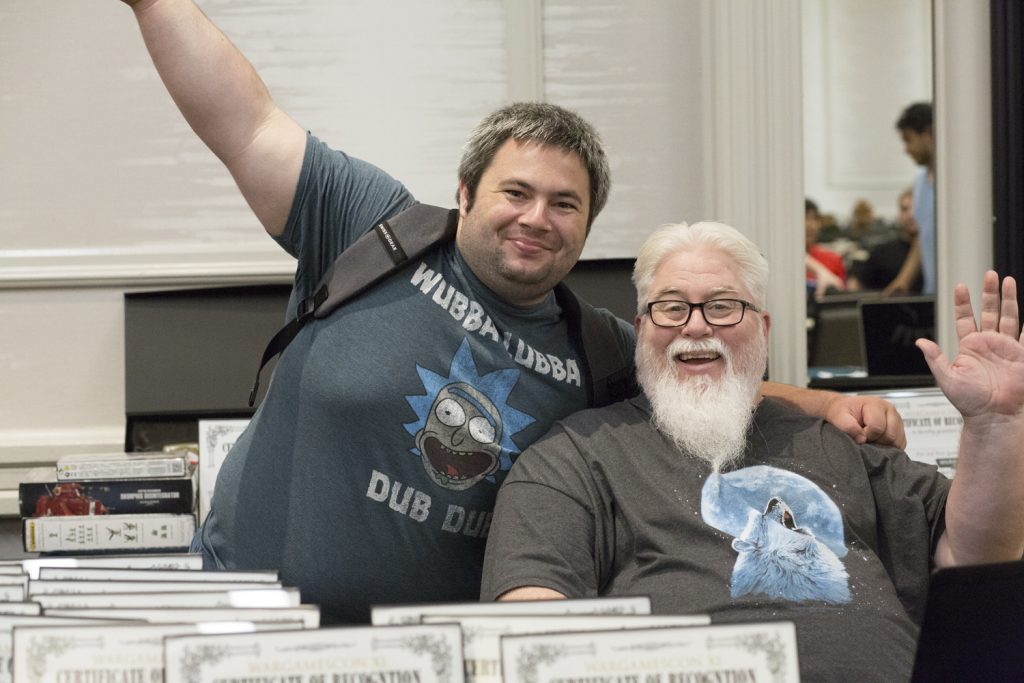
Every gamer knows it: without someone to take on the labor of organizing events, things will usually fall apart. Someone needs to volunteer to take on the task of initiating and maintaining group conversation, as well as scheduling. It may also help to informally moderate conversations, as groups can fall apart whenever there’s an argument about which army is most effective or whether a favorite army sucks with the new rule set.
A leader’s responsibility should include setting an example in line with the discussed decorum and group expectations, and encouraging voting or consensus on important issues like when you’re switching over to the most recent edition and when and where you’ll meet. It’s not always comfortable to bring new discussion points to the table or to reevaluate them, but a group leader has to do that, too.
If you’re the leader, you should also be on the lookout for your back up. Eventually, you’ll experience a tough life event or illness, you’ll burn out, or work and family obligations might get busy. Think of it like an effective shield wall: you’re a badass, but you need to step back while another competent fighter rotates in. Who is that person for you?
Establish the Battlefield: Choose Your Real Setting
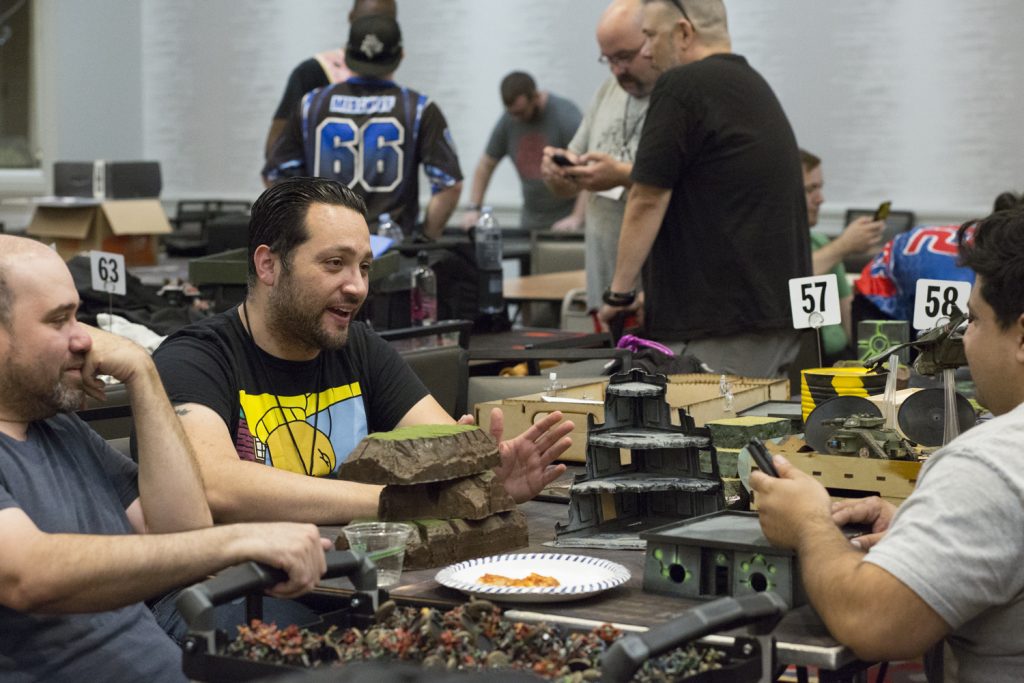
At first glance, it doesn’t seem like a big deal, but where you play Warhammer can be just as important as the other details of gathering. Check out available options and consider the choices from multiple angles:
- Are you relying on a flaky or inconsistent group member for a venue?
- Is there enough room or space for your group in the proposed venue?
- Does the venue work for everyone in terms of commuting distance and other practical details? (One person’s man cave is another person’s asthma attack!)
- Are you going to play at the same location every time, or would it make more sense to play Warhammer at a local gaming store?
- What issues in your group affect venue selection?
A good friendly local gaming store (FLGS) is the safest bet when it comes to having reliable places to play. Some FLGSes will extend hours, rent private rooms, and allow table reservations for groups, and typically, the more interested you are in contributing to the community, bringing new customers, and buying merchandise there, the more flexibility you’ll get from an FLGS. At an independently owned store, it’s usually pretty easy to work something out with the store owner. You might need to scout out a few to find one heavily invested in providing space for Warhammer games.
Games Workshop stores are also ideal places to play. They exist to help you with everything from painting to rules questions, and they’re there to sell you what you need and do everything to support your ability to play Warhammer and other Games Workshop products.
To make it easy, Games Workshop has a storefinder. You can find Games Workshop and Warhammer store locations near you, and also get a list of independent retailers who carry Games Workshop products. Plus, if you want to save some money, getting established as a player at an independent store or having orders shipped to a Games Workshop store (which is free) will really help you out long term.
Remember: your gaming store has a lot of overhead, so make sure to support them, recommend them to friends, buy your snacks and products there, and participate in community activities to help them stay afloat.
Embrace Technology: Use Shared Tools

While we’re not in the 42nd millennium yet, there is plenty of technology to support your gaming experience and to make it easier on the organizer(s) of your group. Here are some free Warhammer tools that might work well for you:
- Google Calendar: Create and share a gaming calendar specifically with your group. That way, everyone can keep track of your next play date, and changes will be reflected on everyone’s schedule at once.
- Doodle: This is a free online scheduling tool. Create a list of possible times during a week, and ask members to enter their availability at their convenience. Getting a group together at the same time at the same place is a big pain point and one of the most challenging things about running or participating in a regular Warhammer group. Minimize that problem with Doodle.
- Discord or Slack: Most gamers use Discord, and many office workers have Slack accounts. You can use these free, team-based communication tools to organize events, chat about the latest updates, and keep in touch between games. Discord and Slack allow you to separate chat into channels, which is especially useful when you only have time to check on the important stuff. We recommend creating channels for scheduling, rules discussion, personal chat, memes/humor, and a general discussion area. You can always add more channels as needed. If you have a big group, make sure you add information for your new group members.
- Google Drive: Need to share files such as army lists, or photos of your painting progress that you want to keep? Easy – organize it all in a shared Google Drive. Make sure all members have access to add items where needed.
- Warhammer army list builders: It might be in the best interest of your group to use the same online Warhammer army list builder to make it easier to share information and builds.
- Group Text Message: You need to have an easy way to reach everyone at the same time. While most people would prefer to keep their extended conversations to an app like those suggested above, group text messages are essential for day-of communication and to notify the group of last minute changes. Good communication will really support the sustainability of your group. “Had to stay late at the office. Be there in 20 minutes” is a great example of a polite message you’d want to send when applicable.
If you’re starting from scratch or have been part of a failed Warhammer group before, reflect on what causes groups not to meet, and try to proactively address the problems. While some groups are ambitious and try to meet more often than realistically possible, others might lack a key organizer that can make Warhammer gatherings happen. Respecting others’ time, schedules, real life commitments (which should always come before gaming), finances, and general person can go a long way in making a community run smoothly–so what do you and your community need?
